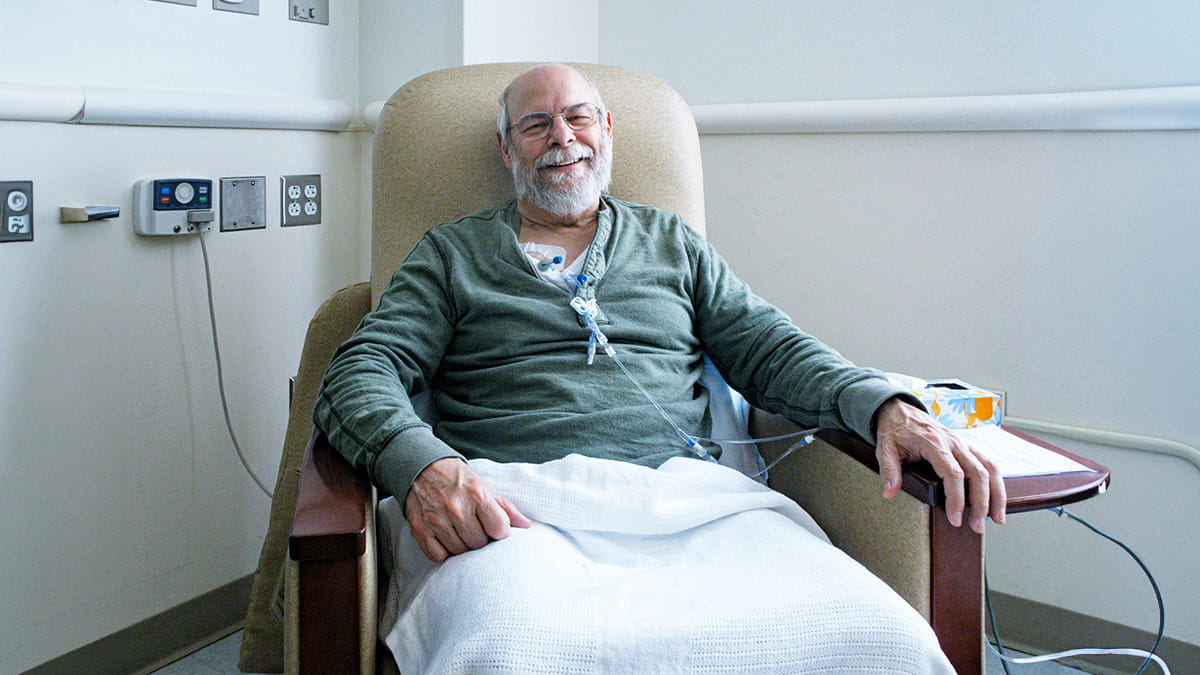Blog article
Elective surgery 101: Managing your mental health after surgery

It’s common to feel a mix of relief, anxiety, frustration, and even sadness during the healing process. By understanding and addressing your emotions, you can feel more balanced and in control as you recover.
In this blog, we share practical tips for managing your mental health after surgery and offer strategies to support your emotional wellbeing during recovery.
Post-surgery anxiety and depression
Research shows that many patients experience symptoms of anxiety and depression after surgery, both during their hospital stay and in the months following. Interestingly, the type of surgery does not seem to significantly affect the likelihood of experiencing these symptoms, suggesting that the experience of undergoing surgery itself plays a major role in psychological wellbeing.1
Although anxiety tends to decrease over time, depression can actually worsen in the months following surgery, highlighting the importance of addressing mental health during recovery.1
Recognising and managing these emotions early on can play a vital role in improving overall recovery outcomes and reducing long-term distress.1
Practice relaxation techniques
Relaxation exercises can help ease anxiety and promote a sense of calm. Here are a few techniques we recommend giving a try if you start to feel overwhelmed:
Deep breathing exercises: Focus on taking slow, deep breaths in for a count of four, holding for a count of four, and then letting out for a count of four. This can help to activate your body’s relaxation response and help reduce stress.
Guided imagery or visualisation: Picture a peaceful scene, like a beach or forest, and imagine yourself there. Visualisation can help shift your focus away from negative thoughts and create a sense of calm. There is a plethora of guided visualisation meditations available to watch for free on YouTube.
Progressive muscle relaxation: Slowly tense and then relax each muscle group in your body, working from your toes to your head. This exercise can help you release tension and feel more grounded.
Check out our blog, How to start mediating, for more help.
Stay connected with loved ones
When recovering from surgery, it’s easy to want to withdraw into yourself and avoid reaching out to loved ones. Even if you’re not feeling up to socialising, maintaining connections with family and friends can help lift your spirits.
Reach out for support: Let your loved ones know how you’re feeling and ask for help if you need it. Sometimes, just having someone to talk to can make a big difference.
Schedule regular check-ins: Arrange calls, video chats, or regular visits with close friends and family members. Having something to look forward to can boost your mood. Plus, it’s likely your loved ones will want to see you and help where they can.
Focus on what you can control
It’s easy to feel overwhelmed when recovery doesn’t go as quickly or smoothly as planned. Instead of dwelling on what you can’t do, try focusing on the things you can control, including:
Stick to a routine: Even if it’s just a simple daily schedule, having a routine can bring a sense of normalcy and stability to your days.
Set small, achievable goals: Break your recovery into small milestones – whether it’s walking a few extra steps each day or showering solo. These small wins can build confidence and keep you motivated.
Celebrate progress, no matter how small: Give yourself credit for every bit of progress, even if it’s just getting out of bed or taking a short walk.
Address negative thoughts and self-talk
It’s easy to be hard on yourself when recovery feels slow, but this only adds to stress and anxiety. Try practicing self-compassion, like:
Acknowledge your feelings: Instead of dismissing your emotions, allow yourself to feel them without judgment. Remind yourself that it’s okay to feel frustrated or upset.
Reframe negative thoughts: When you catch yourself thinking, “I’m never going to get better,” challenge that thought. Try replacing it with something more balanced, like, “Recovery takes time, and I’m making progress each day.”
Focus on gratitude: Even on tough days, try to identify a few things you’re grateful for – whether it’s support from loved ones, a good meal, or finally finishing all 14 seasons of The Great British Bake Off.
Seek professional help
If persistent feelings of sadness, anxiety, isolation or helplessness are affecting your daily life, it may be time to reach out for professional support. A psychologist can teach you tools and strategies to help you cope with life challenges and symptoms of mental illness.2
A good first step is to talk to your GP. They can create a mental health treatment plan and refer you to a psychologist in your area.3
You don’t have to have a doctor’s referral to book an appointment with a psychologist, but you will need it if you want to access a Medicare rebate.
There are two main options that can help with the cost of psychology appointments:
- Medicare may give you a rebate for up to 20 sessions with a mental health professional per calendar year.3
- Private health insurance can pay benefits towards sessions with a psychologist or clinical psychologist, up to your annual limit. Find out more about HBF extras cover for mental health.
If you’re an HBF member, you can check what you're covered for by logging on to myHBF or calling us on 133 423.
Taking care of your mental health is just as important as caring for your physical health during recovery. By practicing self-compassion, staying connected with loved ones, and focusing on what you can control, you can navigate the emotional ups and downs more smoothly.


